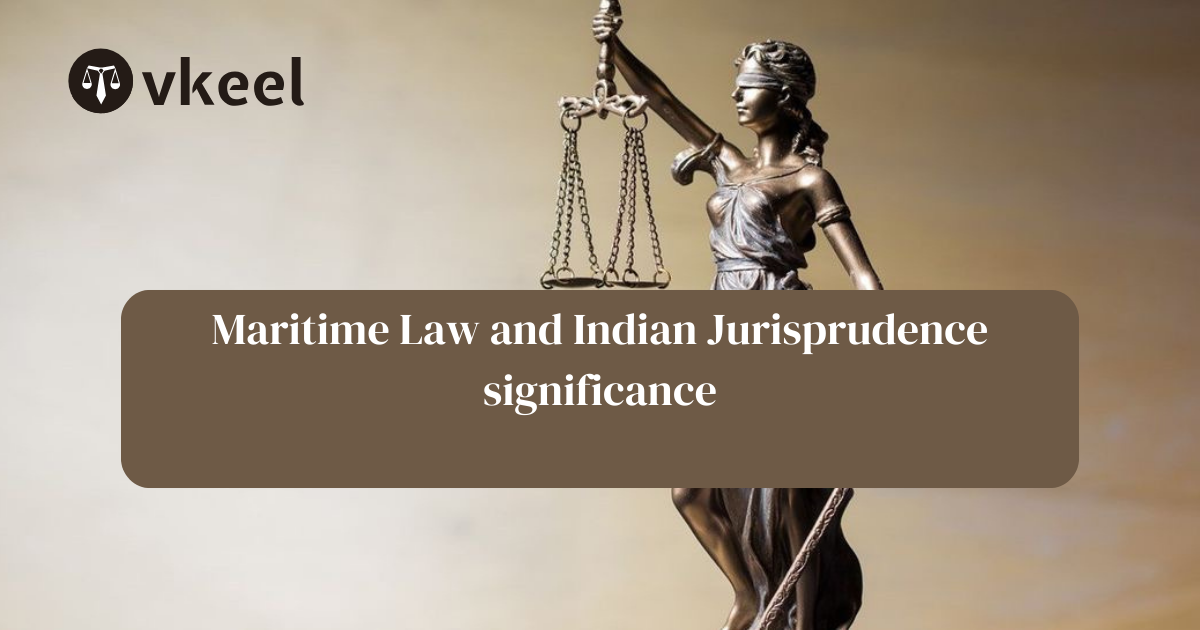Writs : A safeguard for public interest and rights
By Himanshu Kumar
Table of Contents
Introduction
Writs are legal instruments of immense significance in the realm of constitutional law. Originating from English common law, writs have evolved into indispensable tools for safeguarding fundamental rights and ensuring judicial review. In India, the power to issue writs is enshrined in Article 32 of the Constitution, which empowers the Supreme Court, and Article 226, which empowers High Courts.
Writs are legal instruments issued by a court that command specific actions or remedies. They serve as formal written orders directing individuals, organizations, or government authorities to perform certain actions, refrain from certain actions, or appear before the court. Writs play a crucial role in upholding the rule of law, protecting individual rights, and ensuring the administration of justice. The concept of writs originated in English common law and has been adopted and adapted by legal systems around the world, including in India.
The term “writ” is derived from the Old English word “writan,” meaning “to write.” Writs trace their origins to medieval England, where they were used as formal written orders issued by the king’s courts to command or authorize certain actions. Over time, the use of writs expanded to encompass various legal remedies and procedures, serving as instruments of justice and governance.
Historical Background of Writs
The historical background of writs in India is deeply intertwined with the evolution of the legal system and the development of constitutional governance. Writs trace their origins to English common law and were introduced to India during the colonial era. Over the centuries, writ jurisdiction evolved in response to changing socio-political dynamics, culminating in the codification of writ remedies in the Indian Constitution.
Colonial Era and Introduction of Writs
The concept of writs was brought to India by the British East India Company during the colonial period. The British legal system, based on English common law principles, established the foundation for the administration of justice in India. Writs such as habeas corpus, mandamus, prohibition, certiorari, and quo warranto were gradually incorporated into the Indian legal system, enabling the judiciary to exercise control over executive and administrative actions.
Evolution of Writ Jurisdiction
The expansion of British colonial rule in India necessitated the establishment of a robust legal framework to govern the vast territories. Writ jurisdiction evolved to address disputes arising from administrative actions, ensure the rule of law, and protect individual rights. Courts began to exercise writ jurisdiction to restrain arbitrary exercise of power by colonial authorities and safeguard the liberties of the people.
Constitutional Framework and Writ Provisions
The promulgation of the Indian Constitution in 1950 marked a watershed moment in the history of writs in India. Articles 32 and 226 of the Constitution conferred the power to issue writs upon the Supreme Court and High Courts, respectively. These provisions enshrined the right to constitutional remedies as fundamental rights, empowering individuals to seek judicial intervention for the enforcement of their rights and liberties.
Understanding the Writs
Writs are formal written orders issued by courts, commanding specific actions or remedies. They serve as instruments of justice to protect individual rights, enforce statutory duties, and ensure the rule of law. In India, writs are classified into five main types: habeas corpus, mandamus, prohibition, certiorari, and quo warranto. Each type of writ serves a distinct purpose and is invoked under different circumstances.
Habeas Corpus
Habeas corpus, Latin for “you may have the body,” is a writ used to secure the release of a person who is unlawfully detained. It ensures that individuals are not deprived of their liberty without due process of law. In the landmark case of A.K. Gopalan v. State of Madras (1950), the Supreme Court held that the writ of habeas corpus is a bulwark against arbitrary detention and is available against both state and private individuals.
Grounds for issuing Habeas Corpus writ
Unlawful Detention: Issued when someone is held in custody without legal justification or authority.
Violation of Rights: Used if the detention violates the person’s legal rights, such as constitutional or statutory provisions.
Lack of Due Process: Applied when there is a failure to provide fair legal proceedings before deprivation of liberty.
Mistaken Identity: Utilized when the detention is based on a case of mistaken identity or wrongful accusation.
Threat to Physical Liberty: Employed if there is a risk of physical harm or abuse while in custody.
Mandamus
Mandamus, Latin for “we command,” is a writ issued to compel public officials or authorities to perform their statutory duties. It aims to prevent the abuse of power or neglect of duty by public servants. In State of West Bengal v. Administrator, Howrah Municipality (1972), the Supreme Court held that mandamus can be issued to enforce public obligations, such as the provision of essential services and protection of fundamental rights.
Grounds for issuing Mandamus writ
Failure to Perform Duty: Mandamus can be sought when a public official or authority fails to perform a statutory duty or obligation mandated by law.
Non-Exercise of Discretionary Power: Issued when a public official or authority refuses to exercise discretionary power vested in them by law without valid reason.
Delay in Decision-Making: Used if there is unreasonable delay or procrastination by a public authority in making a decision, leading to injustice or detriment.
Violation of Legal Rights: Applied when a person’s legal rights are infringed upon by the inaction or refusal of a public authority to act in accordance with the law.
Public Interest Concerns: Mandamus can be sought to compel action by a public authority in matters of public interest, where there is a failure to address pressing issues affecting the community.
Prohibition
Prohibition is a writ issued by a higher court to prevent a lower court or tribunal from exceeding its jurisdiction or acting ultra vires. It aims to maintain the integrity of the judicial process and uphold the principles of natural justice. In State of Punjab v. Surinder Kumar (2019), the Supreme Court invoked the writ of prohibition to restrain a lower court from proceeding with a case beyond its jurisdiction.
Grounds for issuing Prohibition writ
Jurisdictional Error: The decision-making authority exceeded or acted outside its legal jurisdiction.
Violation of Natural Justice: Fairness principles were ignored, such as biased decision-making or failure to provide a fair hearing.
Errors of Law: Misinterpretation or misapplication of the law by the decision-maker.
Procedural Impropriety: Failure to follow proper procedures, which could affect the outcome of the decision.
Unreasonableness: The decision reached is so irrational that no reasonable person could have come to the same conclusion.
Certiorari
Certiorari, Latin for “to be certified,” is a writ used to quash the orders, judgments, or decisions of inferior courts, tribunals, or quasi-judicial bodies. It ensures that legal proceedings are conducted fairly and in accordance with law. In L. Chandra Kumar v. Union of India (1997), the Supreme Court reaffirmed the power of certiorari as a means of judicial review and held that it extends to all judicial and quasi-judicial authorities.
Grounds for Certiorari writ
Error of Law on the Face of the Record: This occurs when the lower court has made a legal error that is evident from the records of the case.
Excess of Jurisdiction: Similar to prohibition, this ground asserts that the lower court or tribunal has acted beyond its legal authority or jurisdiction.
Violation of Natural Justice: Any violation of procedural fairness or principles of natural justice in the decision-making process.
Unreasonableness or Irrationality: The decision reached by the lower court is so unreasonable that no reasonable person would have made the same decision.
Fraud or Collusion: Instances where there’s evidence of fraud or collusion that has affected the decision-making process.
Quo Warranto
Quo warranto, Latin for “by what authority,” is a writ used to challenge the legality of a person holding a public office or position. It seeks to ascertain whether the individual is entitled to hold the office and whether they have the requisite qualifications. In State of Bihar v. Bal Mukund Sah (2000), the Supreme Court invoked quo warranto to oust a person holding the office of Vice-Chancellor of a university without proper eligibility.
Grounds for Quo Warranto writ
Lack of Legal Authority: The individual or entity holding the office or position does not have the legal right or authority to do so.
Violation of Eligibility Criteria: The person holding the office does not meet the eligibility requirements stipulated by law.
Usurpation of Office: Someone has unlawfully taken or assumed a public office or position.
Failure to Perform Duties: The individual holding the office has failed to perform their duties as required by law.
Abuse of Power: The officeholder has abused their authority or engaged in misconduct while in office.
Case Laws
Thompson v. Roy (2023)
In this case, the Supreme Court reaffirmed the importance of habeas corpus in protecting individual liberties. The court emphasized the right to a prompt habeas review for individuals facing prolonged detention, emphasizing the role of habeas corpus in preventing unjust confinement.
R (Miller) v. The Electoral Commission (2022)
This case underscored the significance of prohibition writs in challenging administrative decisions with far-reaching constitutional implications. The court’s decision highlighted the role of prohibition writs in ensuring transparency and accountability in electoral processes.
R (Gina Miller) v. Home Secretary (2021)
In this case, the court expanded the scope of certiorari review to encompass decisions affecting fundamental rights. The ruling demonstrated the evolving role of certiorari in safeguarding individual liberties and holding government actions accountable to judicial scrutiny.
R (Good Law Project) v. Secretary of State for Health and Social Care (2024)
The court issued a mandamus order compelling the government to disclose contracts related to COVID-19 procurement. This case highlighted the crucial role of mandamus in ensuring government transparency and accountability, particularly in times of crisis.
Commonwealth v. Zullo (2023)
This case exemplified the application of quo warranto in challenging the validity of public officeholders. The judiciary’s intervention in preserving the integrity of public office underscored the importance of quo warranto in preventing abuses of power.
Conclusion
Writs remain indispensable instruments for upholding the rule of law, safeguarding individual rights, and ensuring governmental accountability in modern legal systems. Recent case laws and legislative amendments continue to shape the application and scope of writs, reflecting ongoing efforts to adapt these legal remedies to evolving societal needs and challenges.
By staying abreast of recent developments in case law and legislative amendments, legal practitioners can effectively navigate the complexities of writs and harness their transformative potential in advancing justice and upholding the rule of law in contemporary society.
Disclaimer:
The information provided in the article is for general informational purposes only, and is not intended to constitute legal advice or to be relied upon as a substitute for legal advice. Furthermore, any information contained in the article is not guaranteed to be current, complete or accurate. If you require legal advice or representation, you should contact an attorney or law firm directly. We are not responsible for any damages resulting from any reliance on the content of this website.










